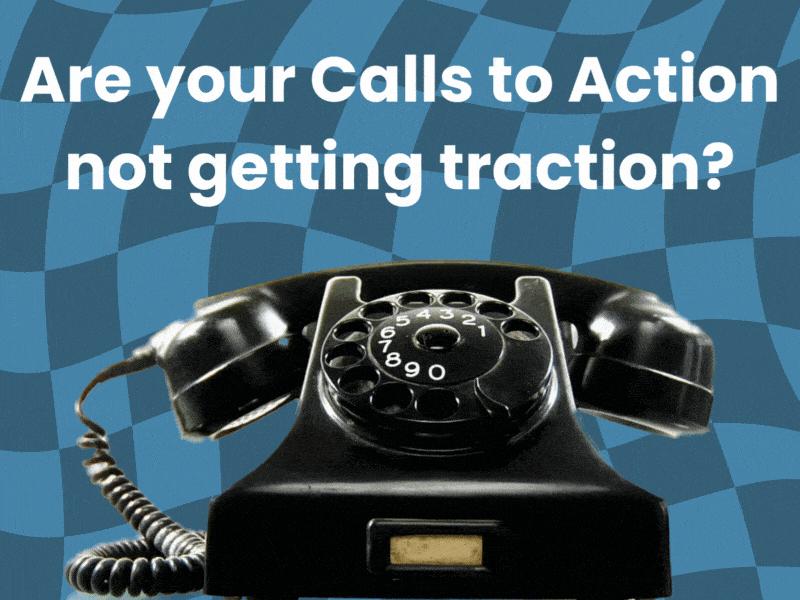What Is Digital Marketing? A Brief Intro

Did you know that 97% of Fortune 500 companies use social media as part of their digital marketing strategy?
Not shocking at all, right? These massive companies understand what online platforms can do: gain customer loyalty, attract new audiences, gather consumer feedback, and drive sales.
But here's the thing - social media is just a fraction of what digital marketing can do for your business. If you want to leverage digital marketing effectively and increase your ROI, you need to understand the full landscape of strategies available to you.
TLDR: Digital marketing is advertising delivered through online channels like search engines, social media, email, and content platforms. Key strategies include SEO (ranking in search results), SEM (paid search ads), social media marketing, email campaigns, content creation, and influencer partnerships. These methods help you reach target audiences, generate sales, build loyalty, and track results in real-time.
Let's explore the most powerful digital marketing strategies and how they can work for your business.
What Is Digital Marketing?
Digital marketing refers to advertising delivered through online channels. It's how modern businesses promote themselves and interact with potential customers where they actually spend their time - online.
This type of marketing offers multiple methods for brands to expand their reach and boost sales. The beauty of digital marketing is its flexibility and measurability. You can start small, test what works, and scale up your investment in the strategies that deliver results.
Let's break down the most popular and effective online marketing strategies.
Search Engine Optimization (SEO): Get Found When People Search
When you use search engines like Google, Bing, or Yahoo, you type in your questions and get a list of results. Usually, the answer you're looking for appears in the top few links.
But those top results don't appear by accident or random chance. Multiple factors determine which pages rank highest - including the quality of content, number of website visitors, relevant keywords, site speed, mobile optimization, and hundreds of other signals.
SEO is about understanding how to rank your website for specific searches. You need to consider what people are actively searching for online that relates to services you can provide.
For example, if someone wants to find hair salon services and your business operates in that industry, you should work to make your website appear as high as possible in search engine results. When you rank well, potential customers can easily find your location, check your prices, and book an appointment. That's a new client, directly from search.
Keep in mind that SEO is often most effective when targeting local searches (like "hair salon in Birmingham" or "plumber near me"). Getting specific with location-based keywords typically delivers the best results for small businesses.
The challenge with SEO? It takes time. You won't see results overnight. But the payoff - consistent organic traffic that doesn't require paying for each click - makes it worth the investment.
Search Engine Marketing (SEM): Pay to Get to the Top
When you Google something and see "Ad" text near the top results, that's SEM in action.
While this strategy requires spending money, it's accessible to most businesses. In fact, most small-to-midsized businesses adopt this marketing method because it delivers immediate results.
Remember that keywords are essential for paid search advertising. You can bid on specific terms to ensure your ad appears at the top of the page when people search for those terms. The amount you'll pay depends on how competitive the keyword is and your campaign budget.
The advantage of SEM over SEO? Speed. You can start appearing at the top of search results immediately, rather than waiting months for organic rankings to improve.
The key is choosing the right keywords, crafting compelling ad copy, and making sure your landing pages convert visitors into customers. Otherwise, you're paying for clicks that don't turn into revenue.
Social Media Marketing (SMM): Meet Your Customers Where They Are
Social media allows businesses to expand their user base and brand reach dramatically. Through built-in analytics, you can gain valuable insights into how consumers behave online and what content they engage with.
As a business owner, you should be posting videos, images, and updates on social media to stay visible and relevant. But social platforms offer even more - you can run highly targeted paid advertising campaigns that reach exactly the audiences you want.
Social media marketing can be incredibly beneficial for brands. In fact, SMM tends to be cheaper than SEM strategies while often delivering comparable or better engagement.
For best results, choose platforms where your target customers actually spend time. If you're targeting professionals, LinkedIn might be your best bet. Younger audiences? Instagram and TikTok. Broad consumer base? Facebook still dominates.
Remember that social media marketing is about more than driving engagement and clicks. It's about interacting with customers, building authentic relationships, and creating brand loyalty that lasts.
Email Marketing: The Classic That Still Delivers
Most digital marketing strategies include sending emails to potential and existing customers to boost engagement. This makes perfect sense - most people check their email every single day, often multiple times.
As marketers, you should focus on building quality mailing lists, personalizing emails based on customer behavior, segmenting your audience for targeted messaging, and improving your click-through and open rates.
Email marketing can be very strategic and psychological. You need to craft the right messages with the right language that meets consumers where they are. You're providing what they need, either before they realize they need it or exactly when they're ready to take action.
The beauty of email marketing? It's incredibly cost-effective and gives you direct access to people who've already expressed interest in your business. These are warm leads, not cold prospects.
Content Marketing: The Foundation of Everything
Content is required regardless of which digital marketing method you choose. Whether you're investing in promotional emails, podcasts, blogs, or social media posts, you need to produce informative, entertaining, high-quality content.
There are no shortcuts here. Quality content demands creativity, strategy, planning, and ongoing analysis. But once that high-quality content reaches the right audience, you can gain brand visibility and generate higher revenue.
As a bonus, great content provides opportunities to solidify customer relationships and attract new consumers for years to come. A single excellent blog post or video can continue driving traffic and conversions long after you publish it.
Think of content as the fuel that powers all your other digital marketing efforts. Without good content, your SEO won't work, your social media will fall flat, and your email campaigns won't convert.
Viral Marketing: High Risk, High Reward
Viral marketing might be one of the most challenging methods to succeed at, but when it works, the results can be extraordinary.
This type of marketing depends on your audience creating buzz and sharing your content widely. When a marketing campaign attracts far more attention than its initial target and gets shared extensively across platforms, it "goes viral."
Viral campaigns usually tap into current trends and culture, using popular references or timely topics to stand out. The challenge? It's nearly impossible to predict whether something will go viral. Success depends entirely on how audiences react and whether they're interested in sharing your content.
That unpredictability is what makes viral marketing both exciting and risky. You can invest significant resources into a campaign hoping it catches fire, but there are no guarantees.
Influencer Marketing: Leverage Established Audiences
Influencer marketing is effective for reaching your target audiences through trusted voices. Studies show that 53% of women have made purchases based on influencer recommendations.
This strategy works when brands partner with influencers who are viewed as experts or trusted personalities in their field. These influencers have already built audiences that trust their opinions and recommendations.
If you choose this method, ensure you select someone who represents values similar to your brand. The influencer's audience should align with your target customers. A mismatch here can waste money and potentially damage your brand reputation.
Done right, influencer marketing gives you access to engaged audiences who are more likely to trust recommendations than traditional advertising.
Why Digital Marketing Matters for Your Small Business
For small business owners, digital marketing is essential for competing in today's marketplace. You're not just competing with local businesses anymore - you're competing with anyone who can reach your customers online.
Social media marketing is particularly powerful for small businesses. Platforms like Facebook, Instagram, and Twitter allow you to reach massive audiences and engage with them on a personal level. With the right content and targeting, you can build brand awareness, increase website traffic, and generate leads and sales - all without the massive budgets that traditional advertising requires.
Email marketing is another powerful tool for small business owners. By building an email list of interested subscribers, you stay top-of-mind with your audience and keep them informed about your latest products, promotions, and content. With targeted campaigns, you deliver personalized messages that resonate and drive conversions. Plus, email marketing software lets you track and analyze results to continually improve your strategy.
For small businesses with limited budgets, digital marketing levels the playing field. You can compete with larger companies by being smarter, more creative, and more targeted with your marketing efforts.
Your Website Needs to Support Your Marketing Efforts
Here's something many businesses overlook: all your digital marketing efforts drive traffic to your website. That's the ultimate destination where conversions happen.
If your website is slow, broken, or provides a poor user experience, you're wasting every dollar you spend on digital marketing. People will click your ads, visit from social media, or follow links from emails - only to leave immediately because your site doesn't deliver.
Your website needs to be fast, secure, and working flawlessly 24/7. It needs to load quickly on mobile devices. It needs clear calls-to-action. And it needs to provide a smooth experience that converts visitors into customers.
That's not optional - it's essential.
We Make Sure Your Website Delivers Results
At Your WP Guy, we monitor your website 24/7 to ensure it's working perfectly and loading fast. We handle all the technical details so your digital marketing investment actually pays off.
When you're driving traffic through SEO, SEM, social media, or email campaigns, you need confidence that your website will convert those visitors. We make sure it does.
We keep your site secure, updated, optimized, and ready to handle whatever traffic you send its way. You focus on your marketing strategy and growing your business. We handle making sure your website performs flawlessly.
Ready to improve your customer experience and make the most of your digital marketing efforts? Book an appointment with us today. We'll ensure your website is an asset that supports your marketing goals, not a liability that undermines them.
You're investing time and money to drive traffic. Let us make sure that traffic converts into customers.



